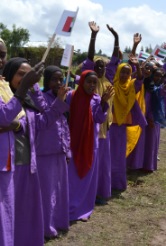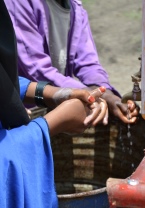Dubai Cares recently announced the launch of its three-year integrated Home Grown School Feeding pilot programme in Ethiopia, which is being implemented in 30 schools to address the school health and nutrition (SHN) needs of approximately 30,700 primary school age children in the Southern Nations and Nationalities Peoples' Region (SNNPR).
 "Dubai Cares has launched this three-year programme to contribute to the evidence base and facilitate informed decision-making and scale-up not only in Ethiopia but also in other countries across the world."
"Dubai Cares has launched this three-year programme to contribute to the evidence base and facilitate informed decision-making and scale-up not only in Ethiopia but also in other countries across the world."said Tariq Al Gurg, Chief Executive Officer of Dubai Cares at the press conference of the programme launch held in Ethiopia.
According to the World Food Programme (WFP), 66 million primary school-age children attend classes hungry across the developing world, with 23 million in Africa alone.
The $(US)4 million Dubai Cares funded pilot programme in Ethiopia is based on a contemporary, cost-effective, nationally-owned and sustainable school health and nutrition model, which aims to enhance primary school enrolment rates, reduce absenteeism and improve the learning abilities of the children in the region.
An Integrated Programme
The pilot is being carried out through a partnership formed by the World Food Programme, Partnership for Child Development, SNV-Netherlands and the Ethiopia Health and Nutrition Research Institute and through this collaboration various aspects have been contributed to the programme.
In addition to in-school meals prepared from locally sourced commodities, components of Deworming treatment and Water, Sanitation & Hygiene (WASH) in schools have been included.

Iain Gardiner, East Africa Regional Coordinator for PCD, said,
"The Dubai Cares funded HGSF programme is a leading example of how different stakeholders can effectively pool their expertise to make a real impact on the health, education and wealth of farming communities in Ethiopia."
Over 600 million school-age children worldwide are infected with parasitic worms which severely affects child health and learning abilities, improving access to safe water, adequate sanitation, and proper hygiene education also reduces illness and death from disease.
Mr Gardiner added,
"As part of the programme, researchers will be conducting one of the largest school health monitoring surveys ever undertaken within Ethiopia. Using this new evidence base, we will be able to ensure that interventions are targeted to where they are most needed."
Useful Links

